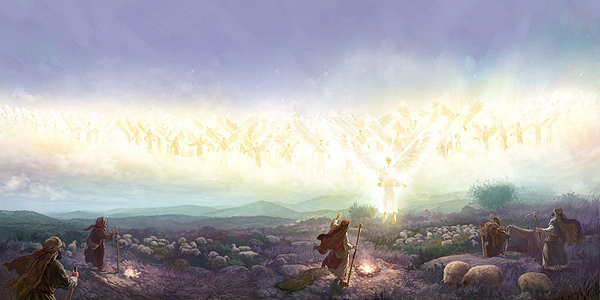|
The Most Precious Gift in the World Is for You, Too by Rolaant McKenzie |
|
|
William Sydney Porter (September 11, 1862 - June 5, 1910), best known by his pen name "O. Henry," was an American writer of poetry and nonfiction. But his fame came primarily from his witty short stories, usually based on personal observations of human interactions, that often included surprise endings. One of Porter's best-known short stories was The Gift of the Magi (1905), a heartwarming tale of Jim and Della, a young married couple in a small apartment, short on money on Christmas Eve, seeking nonetheless to surprise each other with a special Christmas gift. Della had beautiful long brown hair, something in which she took great pride and considered to be one of her most valued possessions. For Jim, it was a gold pocket watch inherited from his father, who inherited it from his father, attached to an old leather strap instead of an appropriate chain. Della was grief-stricken when she discovered that she had only $1.87 (more than $65 today) to buy a present for Jim, a $21 dollar (more than $700 today) platinum fob chain for his watch. She decided to go to a nearby hairdresser to sell her hair, for which she received $20. Della then quickly returned to the store to buy the pocket watch chain. When Jim came home from work that evening, Della admitted to him that she sold her hair to buy the chain for his watch. Jim gave Della her present, something he knew she had wanted from the department store for a long time: a set of beautiful ornamental combs. He told her that he sold his watch to purchase the combs. While the gifts that Jim and Della gave each other could not be used until he could get a new watch and her hair grew back, the sacrifices they made for each other showed how precious their love truly was. The story ended with a comparison of these sacrificial gifts of love with the devotion of the Magi for the Lord Jesus, who traveled a great distance to bring precious gifts and to worship Him (Matthew 2:1-12). Shepherds during the birth of Jesus were among the humblest of the people who lived around Bethlehem. Their work, not considered as valuable as that of other members of society, was hard, and their wages were low, made worse by the oppressive taxation of the Roman occupation. Yet, as shepherds kept watch over their flock at night, it was to them that God sent His angel to announce wonderful news (Luke 2:8-20):
Then, with the angel, a multitude of angels appeared before the shepherds, praising God:
God made it known to the shepherds, among the lowest-ranked people in their society, that He was pleased to bestow upon them His peace, and He valued them so much that He sent His most precious gift, His own Son Jesus, to be their Savior, too. Filled with wonder and joy, the shepherds shared these glad tidings with their neighbors and all who would listen to them. They realized God's love and acceptance through this newborn King, the Shepherd of Israel and of the world. Pearls are considered valuable gems, but they come about through suffering. A pearl is made when a mollusk, such as a clam or an oyster, is afflicted with a foreign object that causes painful irritation. The mollusk sheds a substance called nacre over the object, layers of which form a pearl. During Jesus' earthly ministry, He taught many parables about the kingdom of heaven. One of them described a man who valued a pearl so much that he sold all he had to purchase it (Matthew 13:45-46). This is an illustration of the greatest sacrificial gift of love ever given. Jesus prized lost humanity so much that He gave all He had, His blood, to purchase people from every tribe, tongue, and nation (Revelation 5:9). Revelation 21 describes the unsurpassed beauty and wonder of the New Jerusalem, the heavenly city of precious stones and gold, graciously given as a gift by God to all who believe in Him through Jesus Christ. The city includes twelve gates named after the twelve tribes of the sons of Israel. Each gate does not contain pearls. Each gate is a pearl (verse 21). This points to the affliction of Jesus, the King of Glory, shedding His blood on a foreign object, a Roman cross, and raising it up to be an object of exquisite beauty that provides entrance into the city for all who trust solely in His righteousness (Revelation 22:14). Jesus' Parable of the Pearl of Great Price and O. Henry's The Gift of the Magi illustrate the power of sacrificial gifts of love. But the most precious sacrificial gift of love was when:
Jesus emptied Himself of His glory, came to earth in the form of a poor, lowly man, and died on the cross to pay the penalty for sinners (Philippians 2:5-11; 2 Corinthians 8:9). He was buried and rose again from the grave, granting eternal life in His kingdom to anyone who trusts in Him. No matter your station in life, whether you are rich or poor, high class or low class, regardless of your ethnicity, nationality, or language, no matter your past history, the gift of forgiveness, reconciliation with God, and eternal life is for you, too, in Christ Jesus. |
|
| What Is the Gospel? | What Must I Do to Be Saved? | Home | Contact Us | Return | |
